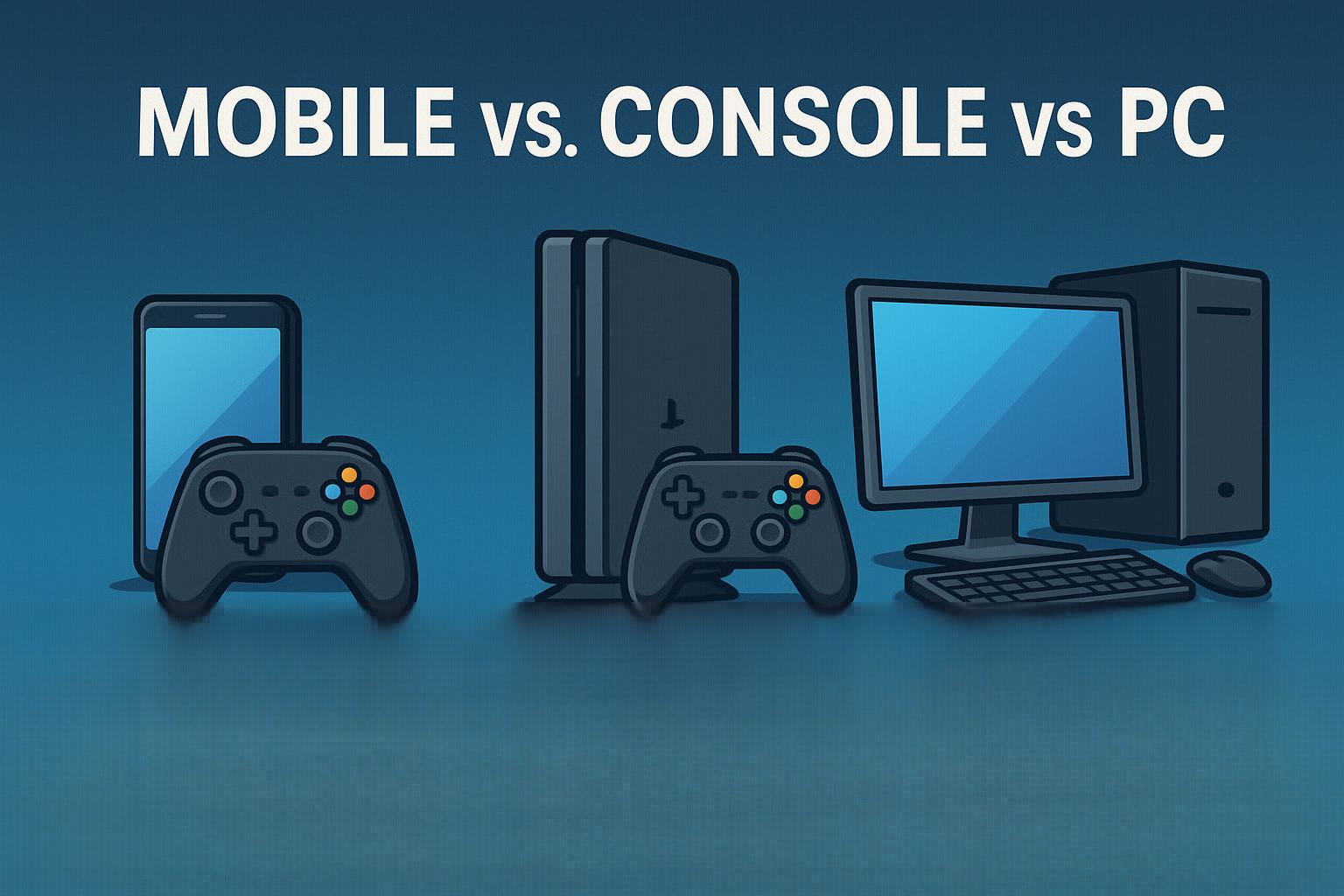Online gaming has become one of the biggest forms of entertainment worldwide. Whether you’re playing a quick match on your phone, exploring a vast open world on a console, or joining a competitive match on a powerful PC, the options are endless. But with so many ways to play, one big question remains: which platform truly dominates the world of online gaming?
To find the answer, let’s take a closer look at mobile, console, and PC gaming. Each has its own strengths, weaknesses, and unique communities. Understanding these differences helps both gamers and developers make smarter choices in the fast-growing gaming world.
Mobile gaming has grown rapidly over the past decade. One of its biggest advantages is accessibility. Almost everyone owns a smartphone, which means mobile games are available to a massive audience. You don’t need to buy special equipment—just download a game and start playing.
Many mobile games are free to play, with options to buy items or features in the game. This business model has helped mobile games earn huge profits. Games like puzzle apps, battle royales, and strategy games are especially popular, and many offer online multiplayer modes.
However, mobile games do have limitations. Smaller screens and less powerful hardware can affect the gameplay experience. Also, some players criticize the focus on in-app purchases, which can lead to a “pay-to-win” feeling in competitive games.
Console gaming is known for its quality, performance, and strong community. Devices like PlayStation, Xbox, and Nintendo Switch are designed specifically for gaming. They offer strong graphics, reliable online services, and a wide selection of games—some of which are exclusive to each system.
Many players prefer consoles because of their user-friendly design. You can plug them in, pick up a controller, and start playing. Online features like voice chat, multiplayer lobbies, and digital stores have made console gaming more connected than ever.
Still, console gaming comes with a higher cost. You have to buy the console itself and usually pay for online services. Plus, games can be expensive. Also, console generations last several years, so technology updates aren’t as fast as on PC.
PC gaming offers the most freedom and performance for serious gamers. PCs can be upgraded and customized for better graphics, faster performance, or specific game needs. Many online competitive games—especially shooters, strategy games, and simulators—perform best on PCs.
The PC platform has a huge variety of games, from indie titles to major blockbusters. Online stores and communities are strong, and modding (changing the game content) is popular. Players can also use a mouse and keyboard for more precise control in some genres.
However, high-performance gaming PCs can be expensive. Also, setting up or maintaining a gaming PC takes more technical knowledge compared to consoles or mobile devices. Not everyone is comfortable upgrading hardware or adjusting settings.
When it comes to numbers, mobile gaming leads by a wide margin. Because smartphones are so common, millions of people play mobile games every day. From casual puzzle games to competitive shooters, mobile has something for everyone.
Console gaming has a strong user base as well, especially among dedicated players who enjoy long gaming sessions and high-quality visuals. Console gamers often spend more time and money on games compared to casual mobile players.
PC gaming has a smaller user base than mobile but includes many of the most serious and competitive gamers. PC players often participate in esports, livestreaming, and other advanced gaming activities. While fewer in number, PC gamers are very engaged.
Several factors help determine which platform someone prefers:
- Budget: Mobile gaming is usually free or low-cost, while console and PC gaming often require more money upfront.
- Game Type: Fast and casual games are more common on mobile. Story-rich or competitive games may be better suited for consoles and PCs.
- Performance: PC typically offers the best performance, followed by consoles, then mobile.
- Convenience: Mobile games are great for short breaks and travel. Consoles offer comfort in the living room, and PCs are preferred for long and intense sessions.
The lines between platforms are beginning to blur. Cross-platform play now allows friends to play together, no matter what device they use. This trend is expected to grow, making platform choice more about personal preference than limitation.
Cloud gaming is also on the rise. It allows people to stream high-quality games on almost any device—even phones or low-end laptops. This could change how people view performance and cost, making powerful games more accessible.
Meanwhile, mobile devices are getting stronger, and new consoles are being developed with better hardware. PC gaming continues to push the limits of what’s possible, with more games supporting high-resolution graphics, ray tracing, and virtual reality.
There’s no single winner in the battle between mobile, console, and PC. Each platform plays a major role in shaping online gaming. Mobile leads in number of users and convenience. Consoles offer balanced performance and exclusive experiences. PCs dominate in power, customization, and competitive gaming.
The best platform depends on what kind of gamer you are. Casual players may prefer mobile. Those who want a mix of comfort and quality might choose consoles. And if you want top performance and control, the PC is hard to beat.
In the end, all three platforms are helping online gaming grow—and that’s great news for everyone who loves to play.
